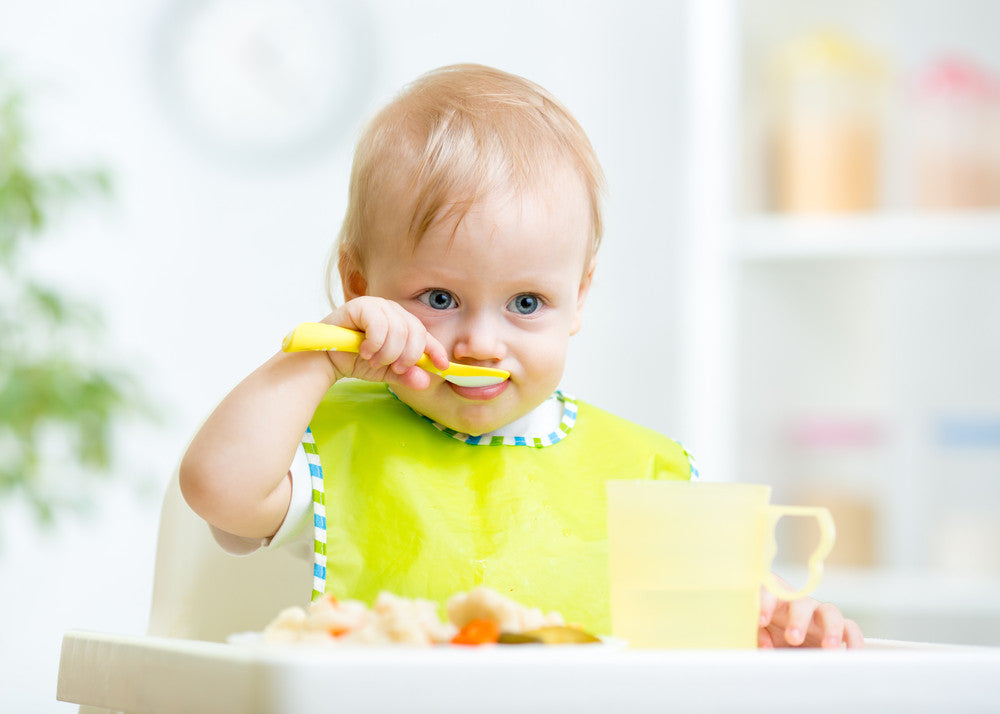Being a first-time mom can be challenging, especially when it comes to figuring out what to feed your baby and when to start them on solids. There are many signs to look for to indicate if your baby is ready to eat, and there are lots of great food options that are safe and nutritious for them. That’s why we’ve put together this quick information sheet to help you out with starting your baby on the right foods first.
When to first introduce solids
Experts believe that the best time to introduce your baby to solid foods is in the first four to six months. The timing will depend on a few different factors with their overall development, including if your baby has the coordination to chew and swallow, if they’ve mastered tongue movement, and can hold their head up on their own. Another tell-tale sign is if they have started to show interest in your foods and have reached out to try and grab items during your meals.
The best starter foods
You will want to start with mashed and soft foods. Small amounts of mashed cooked meats, beans, tender cooked vegetables, cut up bananas, grated cheeses, cooked egg, mushy cereal, and soft deboned fish are excellent starter foods. The goal is to introduce iron-rich foods into their diet that are easy for them to self-feed. Also, don’t be afraid to introduce flavorful foods into their diet, it will help them to accept different types of foods further down the road.
The foods to avoid
Avoid any foods that are hard, long, and sticky. Things like peanut butter, honey, popcorn, whole nuts, long uncooked vegetables, and full-sized hot dogs are bad to start with. These foods can become an easy choking hazard.
Introduce allergenic foods
Contrary to what you believe, introducing peanuts and other typical allergenic foods may help to prevent a risk of developing these allergies further on. Of course, if you notice any hives, breathing issues, or rashes, make sure to take your baby to the hospital right away.
Gagging is normal
Gagging is actually a natural reflex for your baby. It teaches them how to move food around in their mouth and how to not choke on the food.
Begin a daily schedule
Start scheduling feeding times at the same time every day for breakfast, lunch, dinner, and two snacks. This will help your baby learn to eat at specific times of the day, which will be easier for you as they age.
It’s going to be messy
It will take time for your baby to master eating so it’s going to be pretty messy for the first while. Plus, they will make all kinds of funny faces as they experience new tastes and textures. This is all completely normal and is all part of the parenting fun.
Parenthood can be scary at times, but it’s also exciting - especially when it comes to feeding your baby for the first few times. And starting them on solids may take a little time to master but it will ensure proper development for your baby. Follow these tips and you will be able to start off on the right foot!


Leave a comment